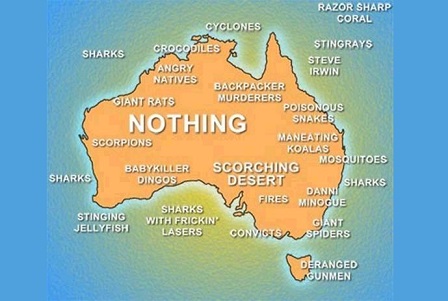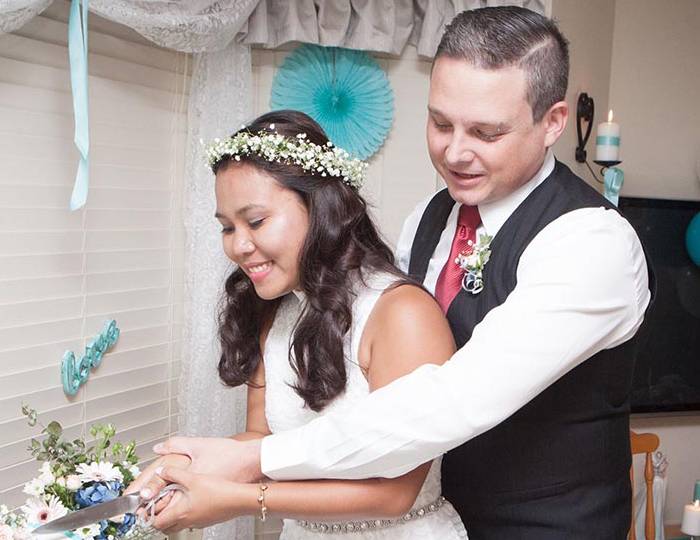Being a permanent resident in Australia. Permanent residency. PR! What does it all mean, especially if it’s now become harder to become an Australian Citizen since the changes to Citizenship regulations in April 2017?

Australian Permanent Residency
Most of Down Under Visa’s Filipina visa applicants apply for partner visas, of course. And Australian partner visas are that little bit different in that they have a temporary visa stage. Only in certain circumstances of long-term relationships will the Department (DIBP) bypass the temporary visa stage (Subclass 820 or Subclass 309) and grant a permanent visa (Subclass 801 or Subclasss 100) with no temporary stage. The difference though is that there is very little difference practically between a temporary partner visa and a permanent partner visa.
The issue for many right now is facing the uncertainty of what may happen with Australian Citizenship and their ability to apply for Australian Citizenship. PM Turnbull (in his infinite wisdom and far-reaching vision) has decided it’s in the national interest to make migrants to Australia wait longer and to work harder to get Australian Citizenship by Grant. What happens if you can’t pass the English test? What if you can’t pass the Citizenship test? What if they deem you haven’t assimilated well enough into the Australian community? What does it mean if you remain a permanent resident at least for a while?
Any disadvantages to permanent residency?
Not that many, actually. There are plenty of people from the Philippines and other countries living in Australia…..permanently…..without taking the oath of Citizenship. They remain in Australia and they may in fact live the rest of their lives in Australia without a problem. Some have personal reasons for doing this, and of course some will no doubt procrastinate and put it off for years always thinking “Yes, I must do that!” Others? Well, some countries don’t allow dual citizenship! If you are, for example, a Malaysian citizen? If you take Australian citizenship, then you lose your Malaysian citizenship. If a US citizen becomes naturalised (a strange term for Citizenship by Grant) in Australia they will lose their US citizenship. Not too many people are prepared to do that.
Filipinos, though, may obtain dual citizenship. I’ll explain a technicality*, but it can be done and you can remain a fully fledged Filipina/Filipino as well as being an Aussie afterwards. So that isn’t a problem.
*Technically you lose your Filipino Citizenship when you acquire Australian Citizenship, however you may regain this by swearing an Oath of Allegiance at the nearest Philippines Embassy or Consulate or Bureau of Immigration office in the Philippines. It takes you about 5 minutes.
Disadvantages
You can’t vote: You decide for yourself if you see this as a serious disadvantage, especially in light of some of the politicians bizarre decisions lately!
You can’t become a politician: As above!
You can’t join the Australian defense forces: A disadvantage to a select few, I would think.
You can’t have an Australian passport: Having an Australian passport can be a definite advantage. There are many countries that will allow Australian citizens to enter freely but won’t extend the same welcome to a Filipino citizen. You need to decide for yourselves if this is something that matters a great deal to you.
Can be deported under some circumstances: In the Philippines you can be deported and declared persona non grata (an unwelcome person) for a variety of reasons, however in Australia there have only been a handful of cases where this has happened.
You could be deported if:
- You are convicted of certain serious crimes and have been jailed for these serious crimes
- You are considered to be a threat to the security of Australia, eg a terrorist.
You don’t have the same unrestricted travel as a Citizen does: An Australian Citizen may come and go from Australia as they please, and may do so for the rest of their lives. You may leave Australia and come back 20 years later. No problems. A permanent resident? You are issued with a Resident Return Visa when your permanent visa is granted, and this lasts for five years only! If you spend less than two of those five years inside Australia, you will need to explain and justify why you should get another one. I’ll explain this in a further article.
Note that you don’t lose your permanent resident status in Australia. You can however lose the right to return if you’re not careful. A very important point.
Emotional reasons: If you feel Australia is your home, then you will want to take the plunge. And good on you for that! Do everything you can to achieve your dream, and don’t ever let politically-motivated decisions of the elected leaders in Canberra make you feel unwelcome. But if it takes you some time, you will be no less a valued member of Australian society as you are right now.
Further Reading
New Australian Citizenship Requirements 2017
Resident Return Visa – What does it mean?









 ALL written content on this site is written by Jeff Harvie RMA. Not by "Content Creators". Not by marketing specialists. And definitely NOT by AI. The same applies to assessments and responses to emails. Visa advice always provided by Jeff Harvie RMA. Be assured we take our dealings with you seriously and professionally.
ALL written content on this site is written by Jeff Harvie RMA. Not by "Content Creators". Not by marketing specialists. And definitely NOT by AI. The same applies to assessments and responses to emails. Visa advice always provided by Jeff Harvie RMA. Be assured we take our dealings with you seriously and professionally.


Questions: Please search our BLOG menu or Visa Knowledge Base
Questions about visa types we don’t handle, or about countries we don’t apply for visas from, will not be answered, Philippines to Australia visas for couples and families only.
Do you have suggestions for topics you would like to read an article about? Click HERE and we will see what we can do!